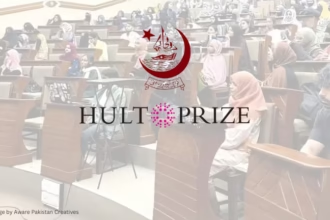The 18th constitutional amendment was adopted unanimously by National Assembly in 2010. The features include removal of the name of former president General Zia ul Haq from the constitution, ban on third time Prime-ministership and Chief- ministership has been lifted, removal of president’s power to dissolve the parliament. Moreover, several ministries at the federal level were given to provinces under this constitutional amendment which include the ministry of Education, Health, tourism, women development, social welfare, youth affairs and others.
The present government of Pakistan Tehrik-i-Insaaf (PTI) has time and again hinted to rollback 18th amendment. This is again the talk of the town. According to foreign minister Shah Mehmood Qureshi, “18th Amendment should be revisited to run the country’s affairs effectively”. The party in power considers 18th amendment a hurdle in the way of progress. It has also termed this constitutional amendment a blocking stone for “Naya Pakistan”- the slogan of Pakistan Tehrik-i-Insaaf (PTI).
The question arises; why the PTI-led government is hell-bent on tearing the famous constitutional amendment? This write-up is aimed at highlighting several incidents and factors, which have possibly convinced PTI-government to think for a revisit of famous 18th amendment.
Recently, the nation saw a divergence of opinion between the Federal government and Sindh government over the lockdown issue amid Covid-19. The federal government was of the view to ease-down the restrictions and advised provincial governments to do so. On the contrary, the Sindh government refused to ease lockdown restrictions in the province. The differences can be judged by the remarks of former Special Assistant of Prime Minister, on Information and Broadcasting, Firdous Ashiq Awan that “all other provinces accepted the decisions made in the NCC meeting but unfortunately Sindh government spokesman, also a provincial minister made a controversial tweet which was an effort to divide the nation at this critical juncture.” In that situation, the Federal government faced opposition from the province and that possibly brought “18th amendment” into the limelight of federal government.
Moreover, ruling Pakistan Tehreek-e-Insaf again faced criticism over country-wide wheat and flour crises. The federal government declared it an artificial shortage made by “Wheat and Flour Mill Mafia”. Prime Minister directed the provincial chief secretaries to launch a “grand operation” against the wheat hoarders and seal their granaries. Though, Prime Minister is a competent authority to appoint Chief Secretary of any province, yet, Chief Secretary under the constitution reports to the chief minister of that respective province. Thus, owing to political influence, the chief secretary of Sindh paid no or little heed to the orders of Prime Minister. Now the National Accountability Bureau (NAB) is investigating wheat and flour crises. Here again, the Federal government experienced powerlessness due to the 18th amendment.
Prime Minister Imran Khan launched “Pakistan Citizen Portal” in 2018, to timely address the problems of people. It was a digital initiative on the part of PTI government. During the launching ceremony, the PM called it a manifestation of “Naya Pakistan”. Interestingly, during the ceremony, PM was asked by media persons that whether this initiative would produce bonanzas in the presence of the 18th amendment? PM responded that his government would work with provinces in this regard. The point to discuss is that most of the issues are related to provincial administration which are under provincial governments. The federal government can only direct provincial officers through Chief Secretary of that province, who is again constitutionally reported to the provincial chief minister. Thus, the federal government is likely facing hurdles in the implementation of this initiative owing to the 18th amendment.
According to senior analysts and retired officers, most of the bureaucrats at the provincial level are against the civil services reforms. The proposed civil services reforms by Dr Ishrat Hussain also include e-governance. Hence, most of the senior bureaucratic edifice paying no heed to such reforms. They believe in the traditional approach of governance as this model can fulfil their elitist interests. Veraciously, political governments of provinces favour their blue-eyed and darling officers who consider digitalization a real bottleneck for their vested interests, perks and privileges. Here, the federal government again witnessing resistance in implementing its initiative of digital Pakistan where e-governance is the very first step.
Likewise, Federal Minister for Education and Professional Training Shafqat Mahmood started a campaign for education reforms and the reforms were started with “one curriculum” policy. As education is a provincial subject, hence federal government cannot implement any reform package without the cooperation of provinces which is again very difficult especially in the case of Sindh province.
Pakistan Tehrik-i-Insaaf’s slogan of “Naya Pakistan” seems to be diminishing due to 18th amendment and that is the only reason the federal government wants to roll back this constitutional amendment for its own political interests.







